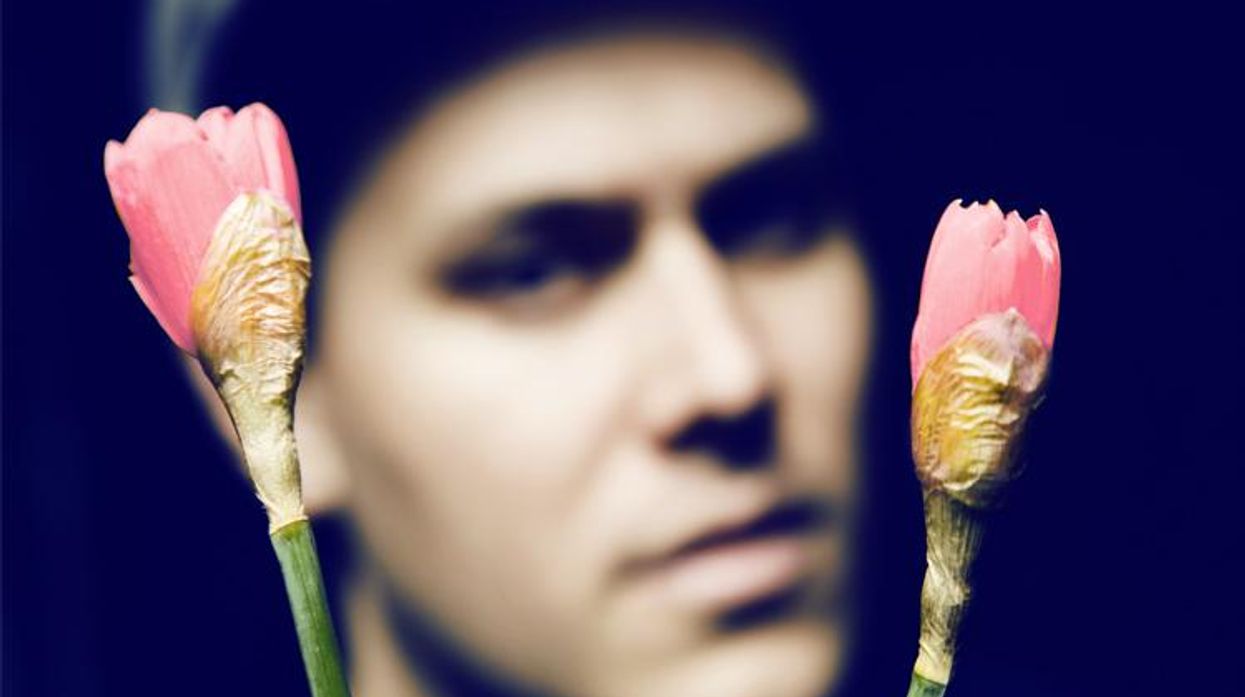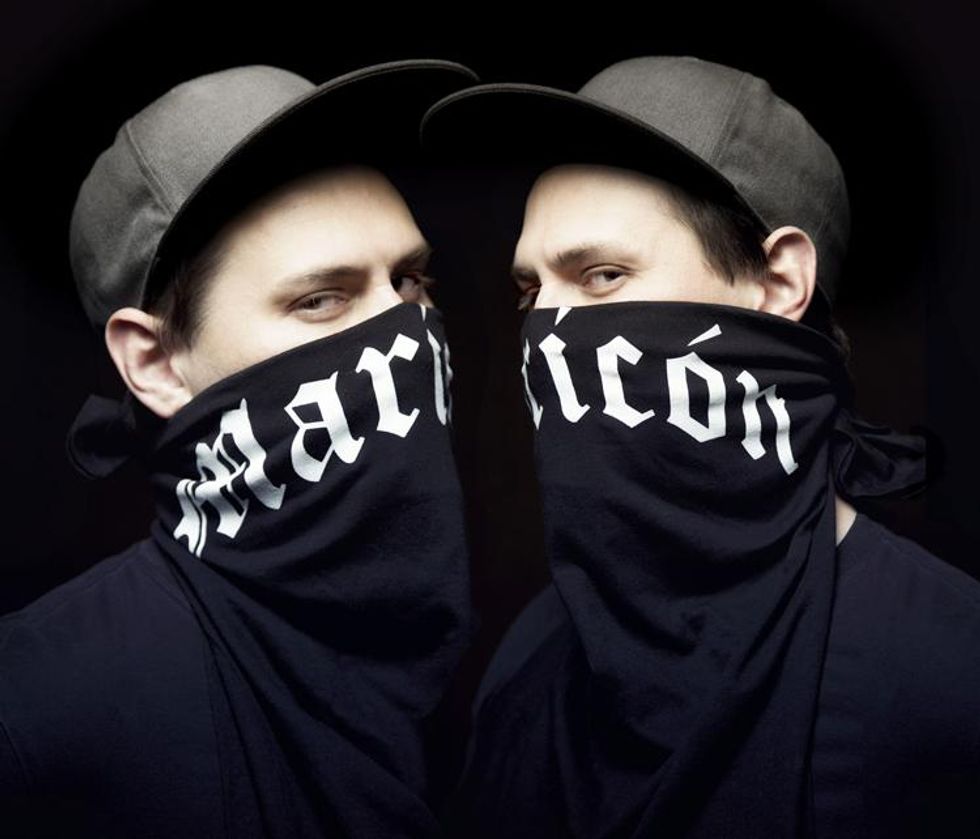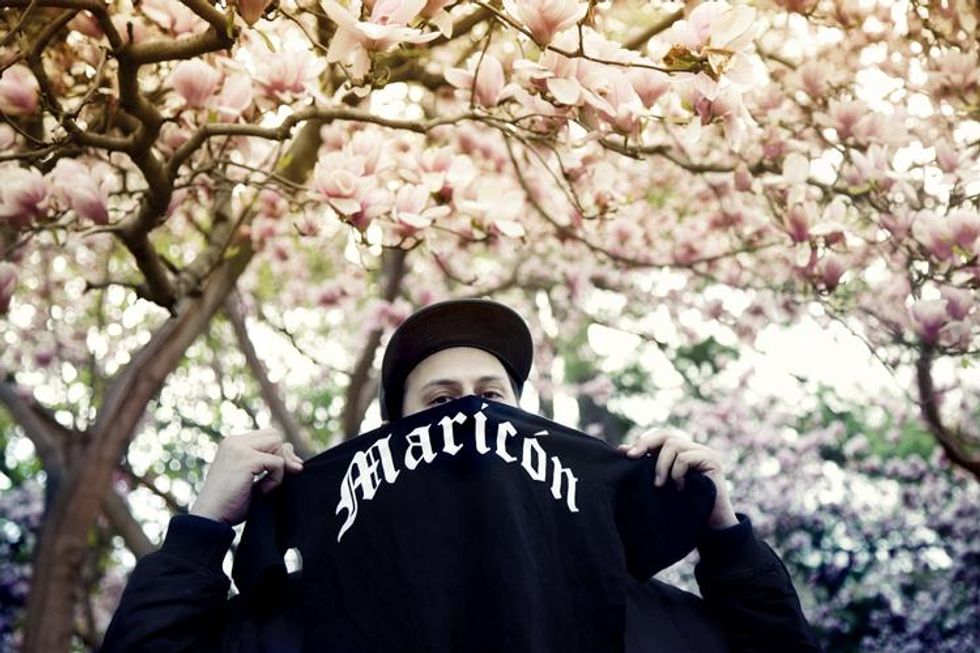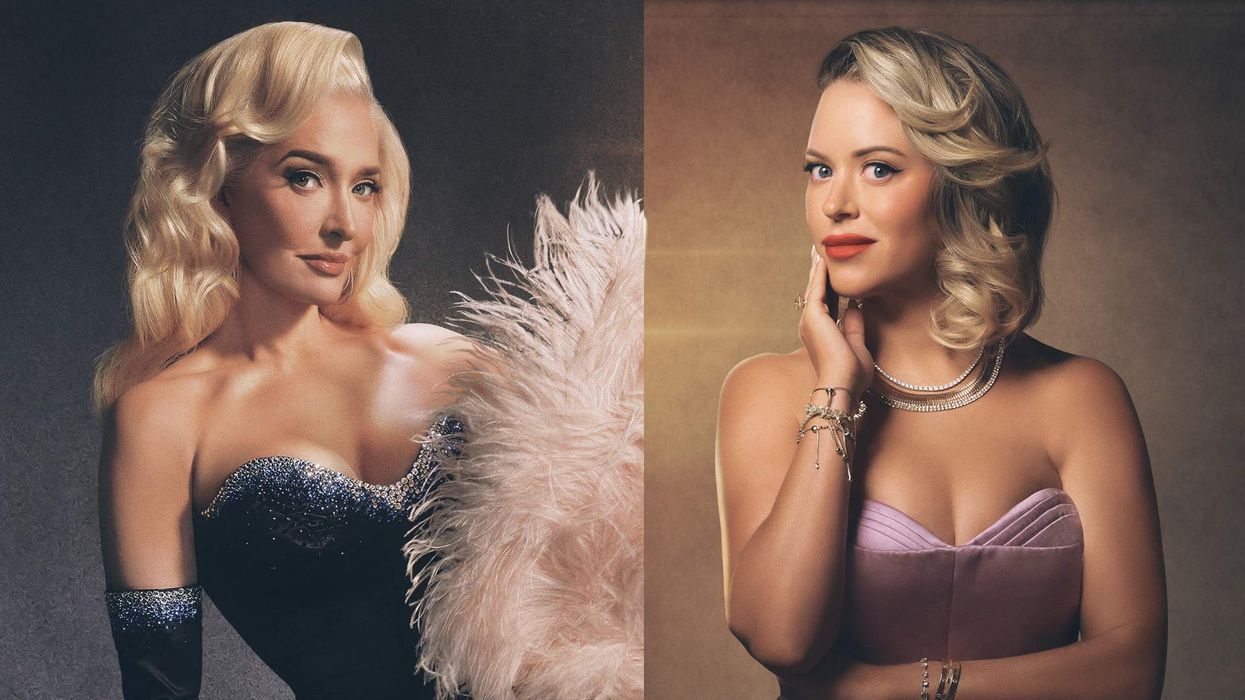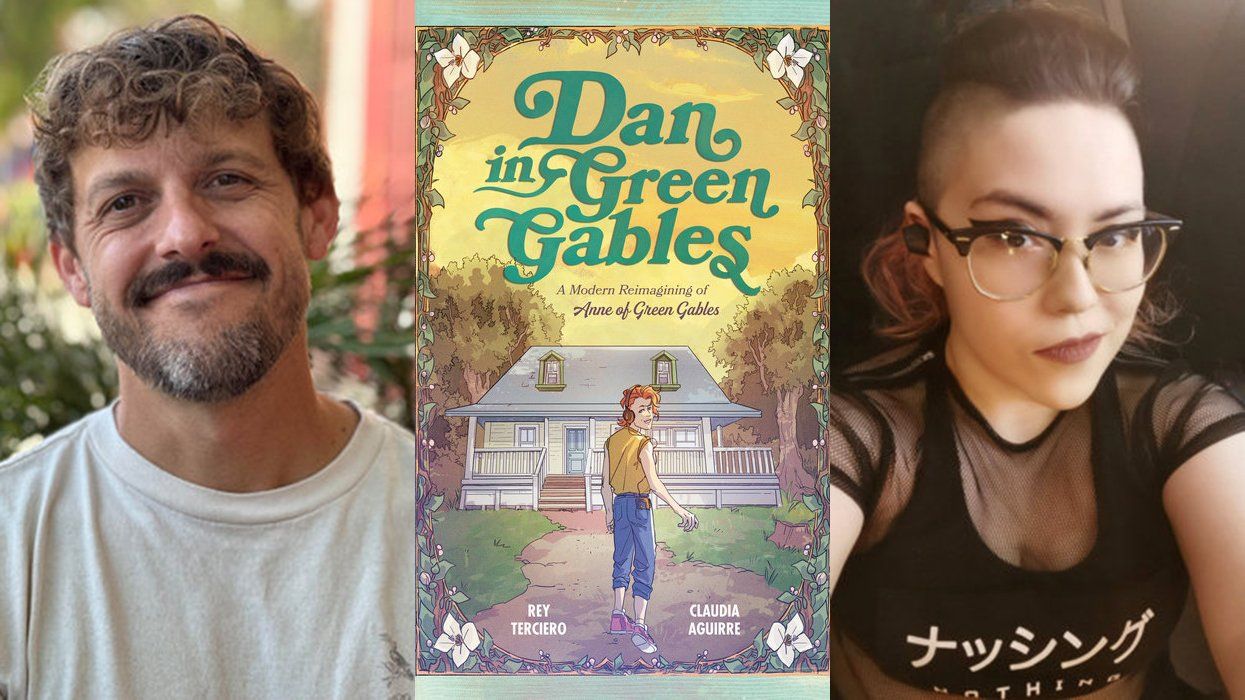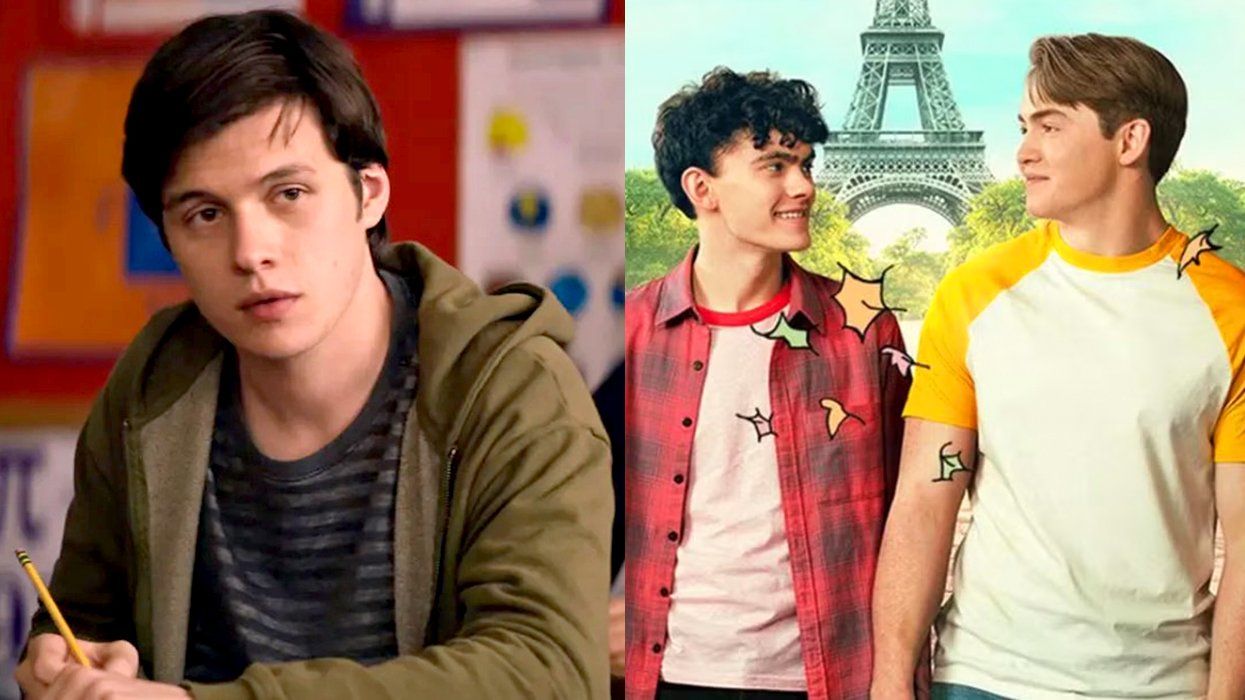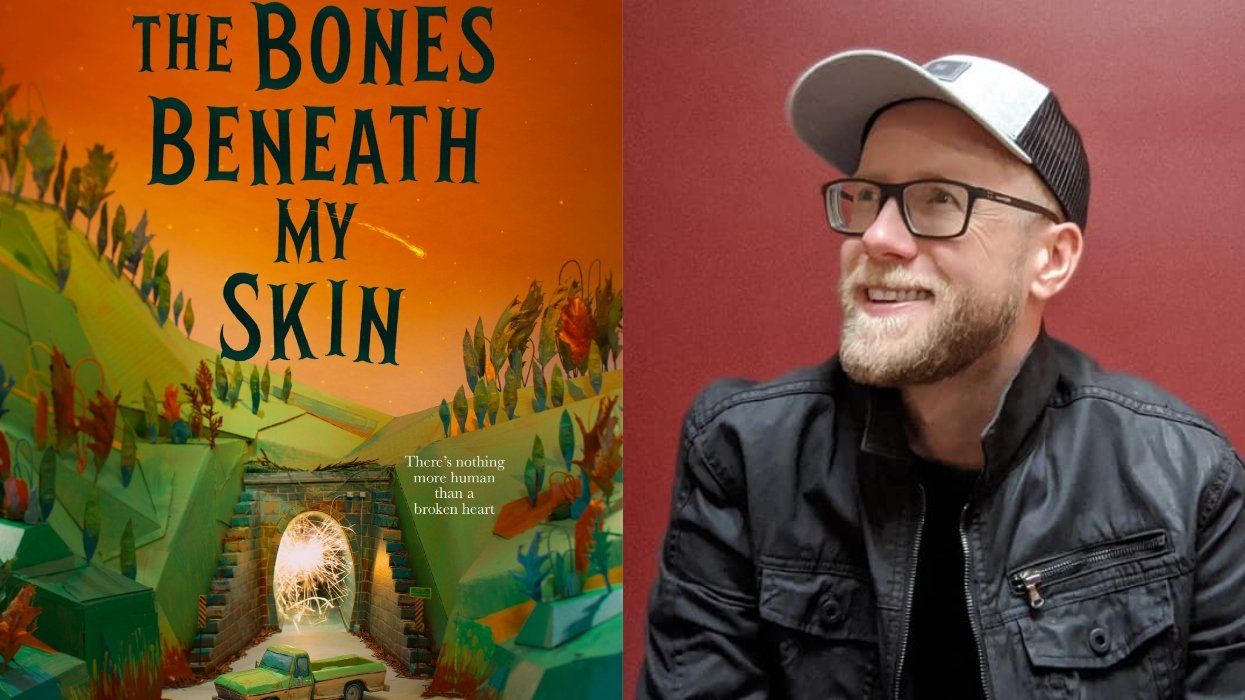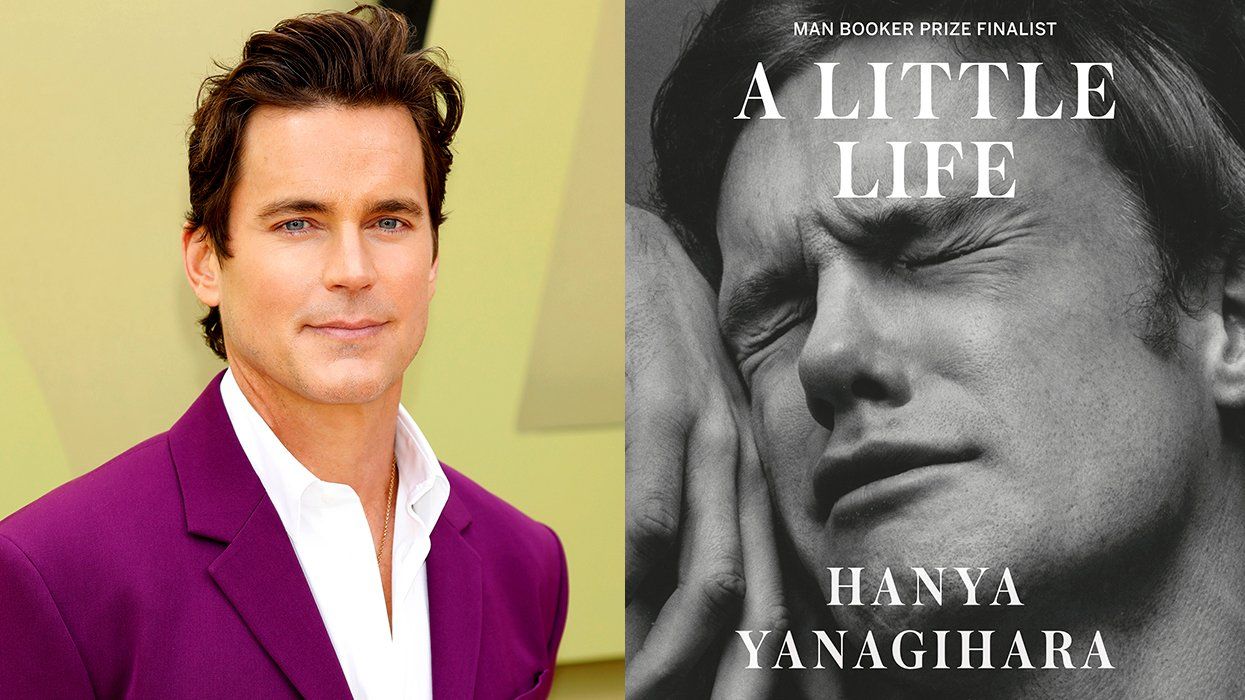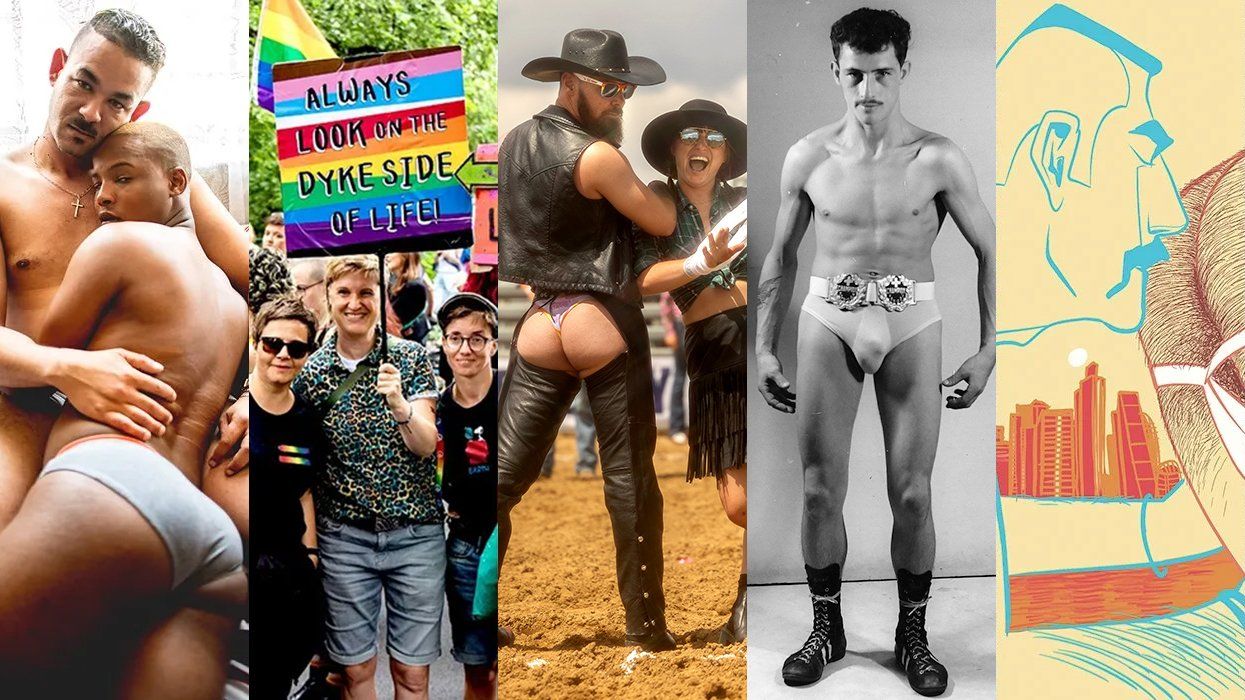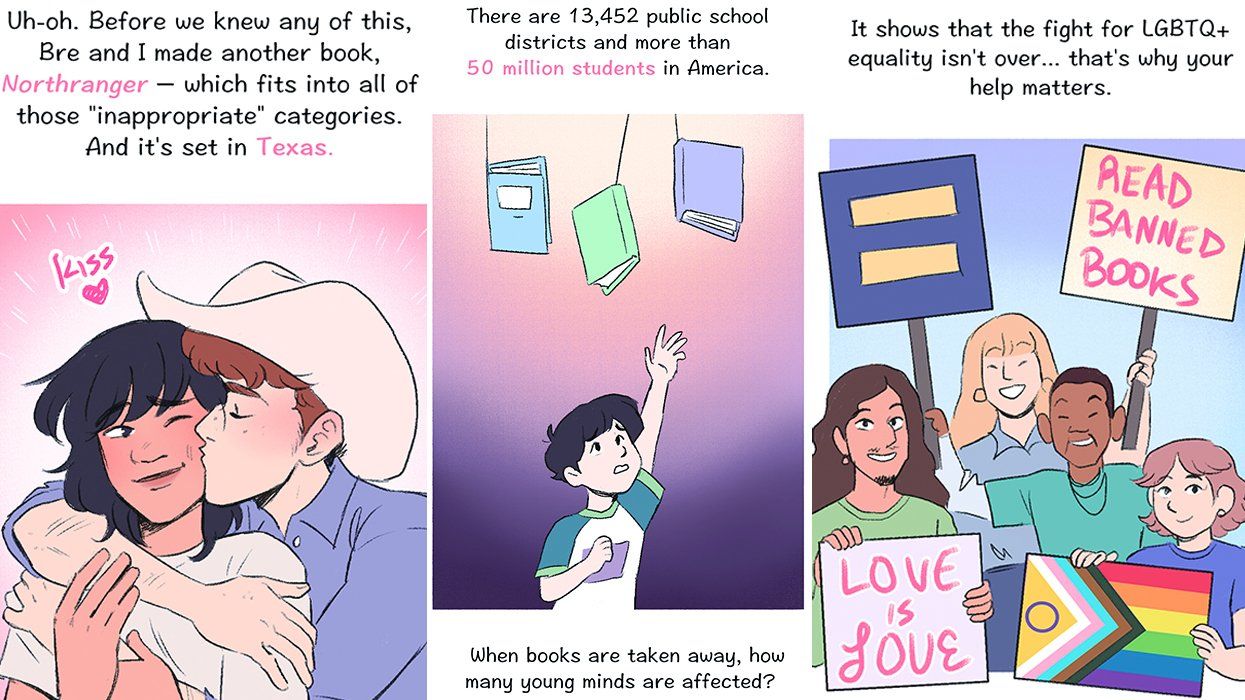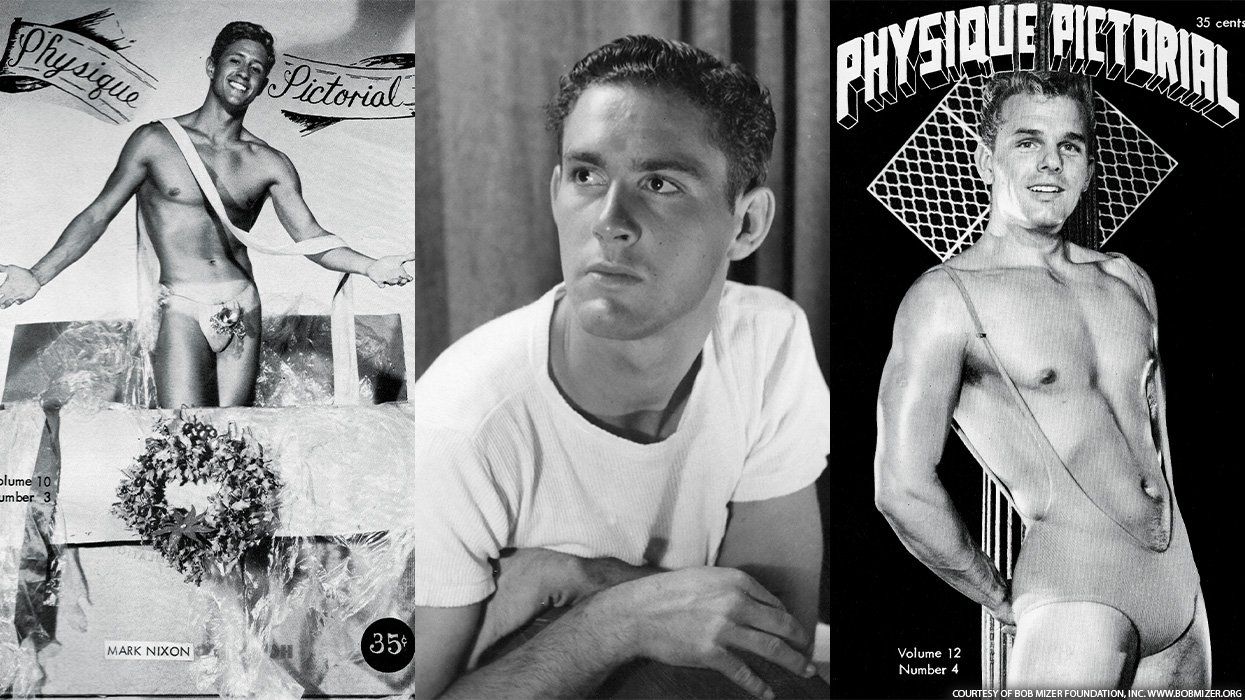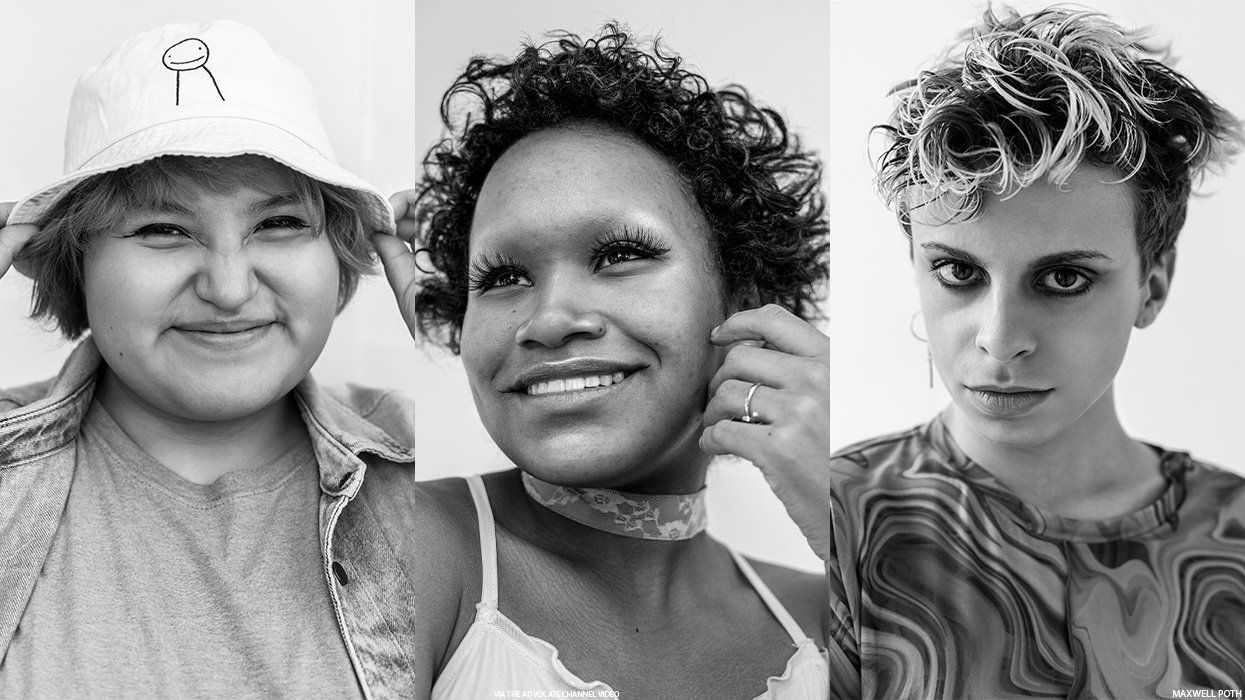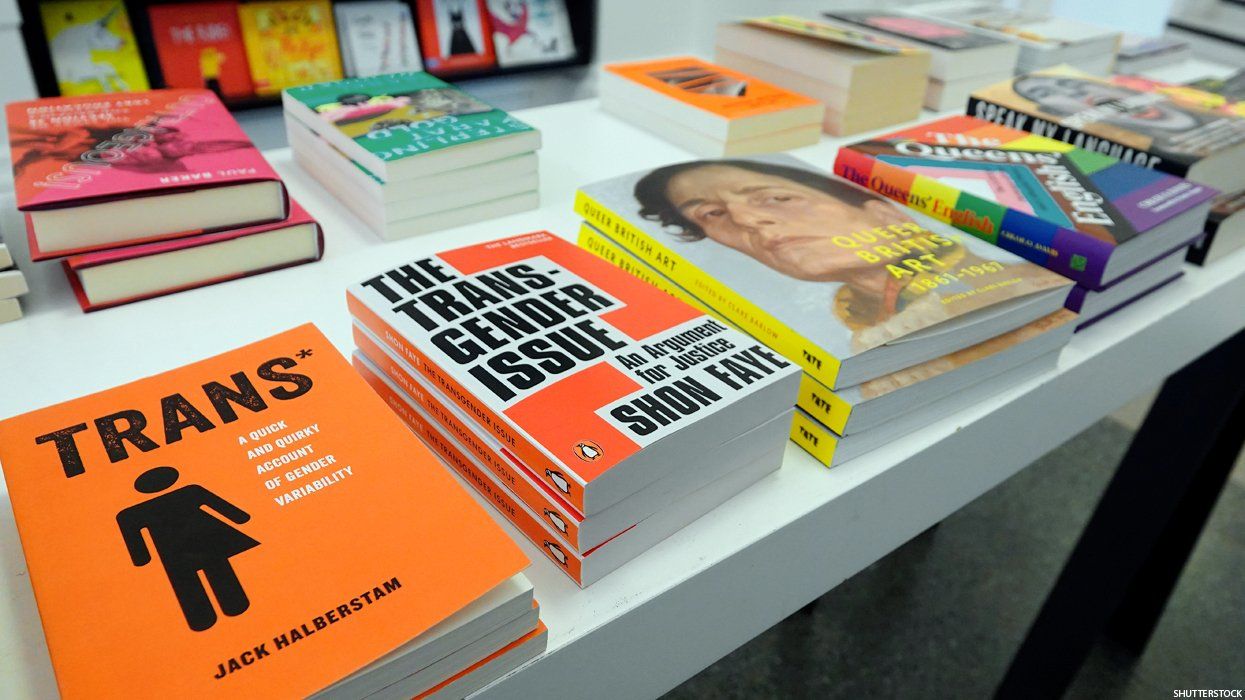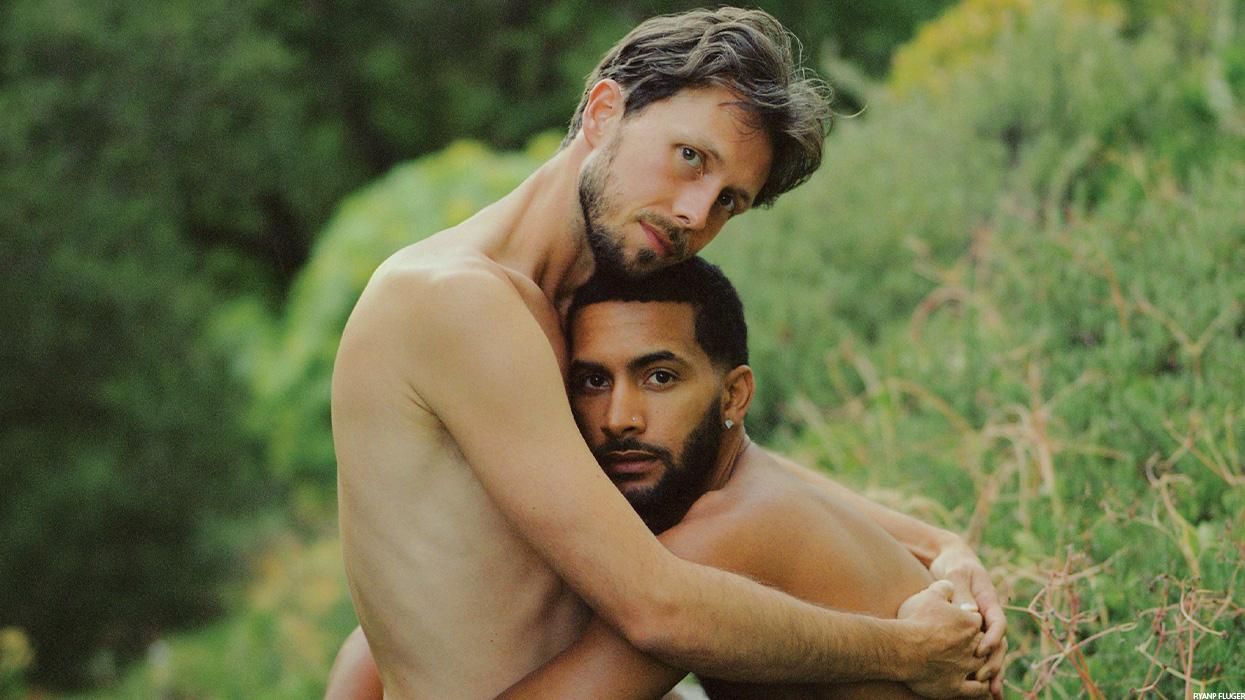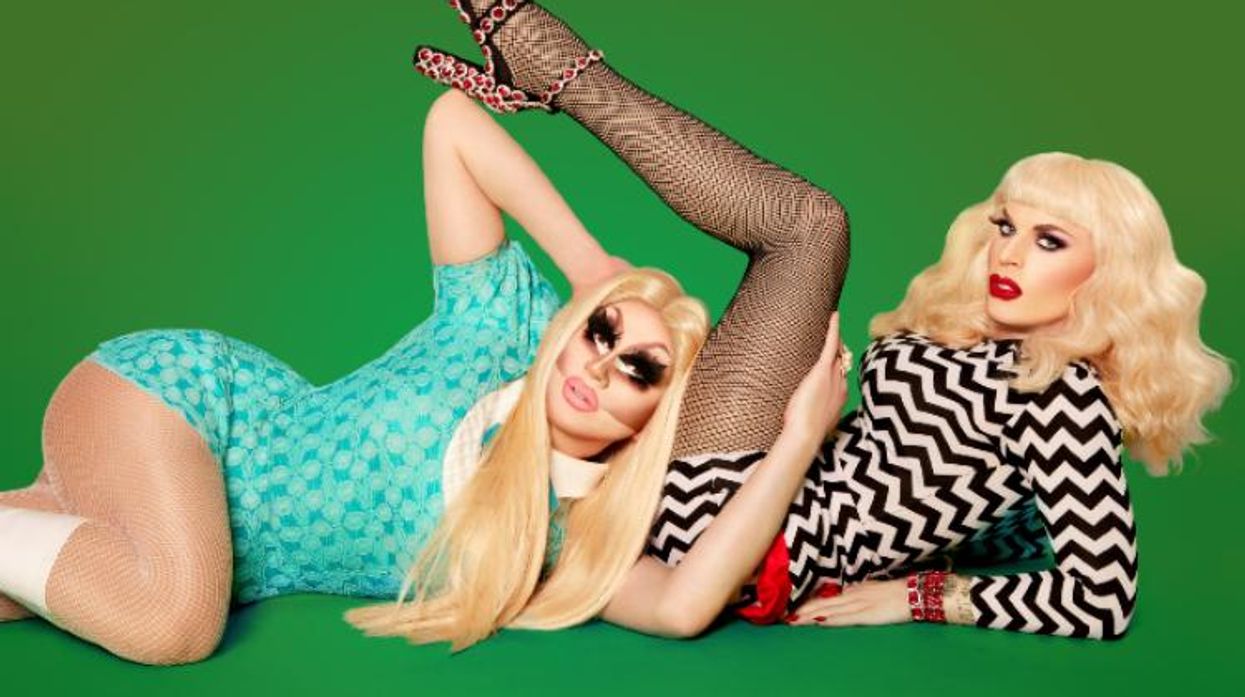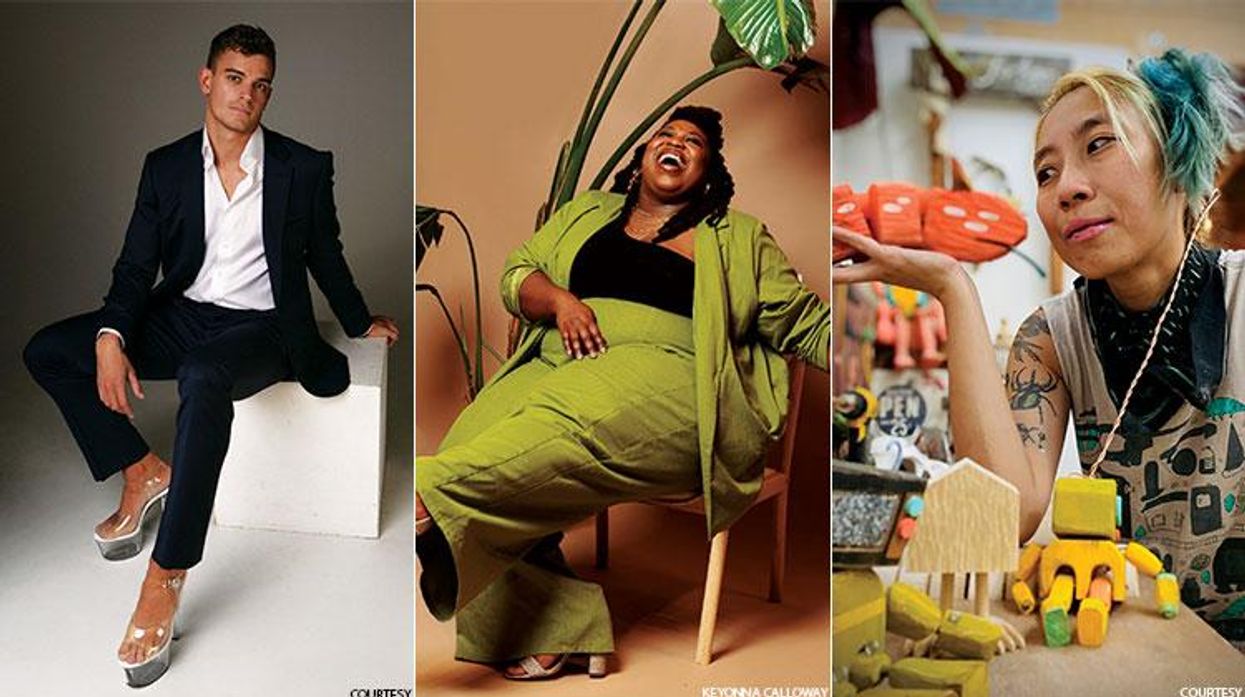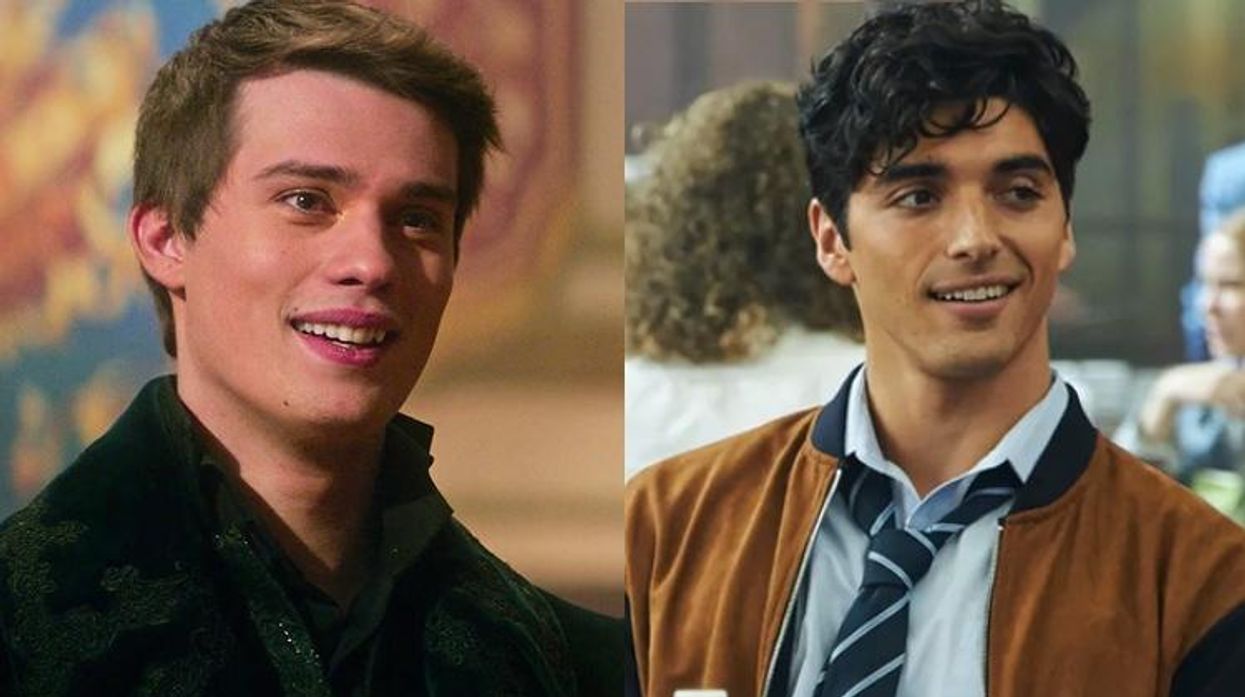Photography by M. Sharkey
Photographer and filmmaker Matt Lambert has been quietly, tirelessly honing his style in far-away Berlin for the past several years. I write "far-away" not because of the city's geographical distance from the Los Angeles native's hometown, but because Berlin provides him with a certain creative refuge and the psychic space he believes is necessary to pursue his art. His distinctly provocative work for magazines -- such as Dazed & Confused, Headmaster, and Hero -- are often snippets of much larger projects and one begins to get the impression that Lambert is really just at work on a single, grand endeavor. It all feels of a piece. The prolific video work feels like the photographs come to life and the stills, in turn, feel like the video, crystallized.
This week marks the release of Lambert's first monograph, KEIM (germ, or seed, in German) a collection of photographs depicting a rather raw, adolescent sexuality. His images have a lush eroticism that hint at an earned intimacy and many may feel they've encountered this subject matter before say, in the work of Larry Clark or Nan Goldin. But there is something fresh and slightly disturbing here. The intimacy Lambert trades in has very little to do with affection or the tenderness of loving relationships and one has to wonder how much of it is contrived. But this is precisely part of the work's undeniable appeal. Is it documentary? Is it theater? I believe the truth is somewhere in between, perhaps found in the realm of literary genres like autobiographical fiction. I spoke with Matt about where he's come from and where his work is leading him on our way to our spring portrait session in Brooklyn.
XXM: Matt, I like to think that I keep up with the photo world but I must admit that I discovered your work only recently.
Matt Lambert: I kind of did that intentionally.
Really?
I grew up in L.A., went to art school, and then started working as a graphic designer. I just dropped into the commercial world at quite a young age. I finished university in Frankfurt, then started my career in London working on the animation/visual effects side of the industry as an animation director. I always had my art stuff parallel but I kept that as my thing that I did for myself. Eventually, I came to New York and that was the apex of "commercial".=
What year was that?
I came to New York in 2007 and got to know people like Gio Black Peter and Slava Mogutin and Brian Kenny. Eventually, Bruce LaBruce became like a mentor to me. I was more and more appalled with working on commercial projects and not doing the shit that I really wanted to do. So I took a pause, started to do some more film work for myself and that kind of evolved into: let's move to Berlin and just go off the radar and make shit and not even consider where it's going to go or how it's going to go. Just get away from this New York way of thinking which is, what's the strategy behind this work? How am I going to PR it? What's the purpose of making this kind of work? Where is it going to live?? So I started making a lot of experimental short-form film work.
What's the film/photography ratio?
I would say about 80% of my time is spent as a filmmaker but I also started really pushing my photography. Photography was much more a developmental tool that I used for my filmmaking: casting tests or moods. So I kind of just built a body of work with this idea that there was no platform or place for the work to live. Around that time, a few years ago, people like Dazed and Nowness were hungry for fresh content and didn't need to have any strategic thought behind it. They're just like, what's up? You want to make shit? If it's relevant and it's cool we'll help you finance that. It was actually Dazed who pushed me quite aggressively and said we'll give you a platform for this work to live on. That was the birth of the only body of work I really give a fuck about, which is the body of work I'm making now, which is the result of me just dropping-out and doing what I wanted to do, not really thinking about where it was going and then all of a sudden getting really lucky that there were actually platforms hungry for exactly what I was doing.
How would you characterize your work right now?
It's taken a big turn. Aesthetically and thematically it appears very similar but the intention behind the work has shifted a lot. When I was living in New York, working in the commercial world, the idea of who I was--my identity or my sexuality--were never things that ever came into play. So as soon as I got to Berlin I was starving to make work that was autobiographical and to make work that really allowed me to investigate my youth, my own identity and my own sexuality. So a lot of it was a curiosity and a desire to deconstruct my past and deconstruct myself. And a lot of it was just the pursuit of fun like, these are fucking cool people I want to shoot, they are interesting and fun and sexy.
Now that London is my biggest base, and because there is such a strong youth community around my work, there's almost a weird obligation to continue the conversations that are based around youth identity and how we look at gender and sexuality, because you see the impact that your work actually has on young people. I get letters and Facebook messages and Instagram messages from kids who are like, "I just came out and this film showed me that I can be a f****t, and it doesn't have to look like this and it doesn't have to look like this. I don't have to be a leather daddy or a RuPaul queen. There's this other version."
You and I know that, but for some kid in Oklahoma, those are the options that they still see. And for them, to see this semi-ambiguous character that doesn't have to be aggressively defined by his sexuality, he thinks, I can just be whatever the fuck I want to be. I can fuck boys, and I can fuck girls and it doesn't matter. It's the next wave in the way that young people present themselves, and it's a lot more multilayered and ambiguous than it was in the generation past. For them to see that and to get those responses from people it's like -- fuck, I have to keep making this work if it's actually affecting and touching and evolving even the smallest portion of youth culture.
What would you make if you could do anything?
I was sitting with Bruce LaBruce last night, we had a little "friends and family" screening at Soho House watching Hustler White. I've seen it before, but I was sitting right next to Bruce and he gave me his director's commentary the whole time and I thought, Man, I really do love cinema. So I think the next thing is to make a film and get it privately funded -- it doesn't have to be a big budget -- and make something I really want to make. I look at someone like Bruce, who is 20 times more brazen than I've ever been in terms of like, Fuck you, I'm going to do it my way. And now he's sitting in the MoMA. Those guys just grabbed a camera and they went and fucking did it.
It's an amazing career that he's had and it's been so fun to watch.
Yes! So when you see those kinds of things, it's inspiring to follow those kinds of narratives. But if you pull punches a little bit then you end up in the middle of nowhere where you're forgotten and you didn't make any money and no one wants to hire you commercially. So it's like you kind of have to go balls-deep.
What music are you listening to these days?
Today, I'm listening to Pansy Division, Nina Simone, Lotic, Crass, Symarip, Cakes Da Killa...
Do you think you'll stay in Berlin?
Yeah, I think so. I was ready to get out of America to be honest.
What do you find unsatisfying about America?
Well, from a working point of view, there are a lot of people who love my work, but they don't really know how to commission me. I have a lot of interesting meetings where they're like, "We're huge fans, we just don't know how to sell you." I think there are certain brands that just don't want to touch it. Some of the most amazing people I know are in New York City. Some of the closest friends that I have are here but there's also a kind of anti-intellectualism which prevails here that exhausts me.
I did live in London for three years, and I would go back to London. But for me, living and working in Berlin and spending time in London is what makes the most sense. Overall, taste levels are a little bit higher in London. There's a celebration of craftsmanship and cultural literacy. You talk to a 17-year old-kid, and he'll tell you who Alexander McQueen and Francis Bacon and Tracey Emin are. Here [in Europe], those things give you cultural status. There, it's just part of culture and it's celebrated. From a professional point of view, there is so much more of an artisanal approach to filmmaking: editors and cinematographers are fucking artists, like painters. The highest cast of society feels like it's the intellectuals and the artists. Here, the artists live in fucking Bushwick and the people who really want to make money are downtown everyday.
Matt's new book, KEIM, was designed by Studio Yukiko and is available from Pogo Books. He is also presently at work writing and directing a TV series for a major U.S. network based around youth, love, sex, and relationships. To see more of Lambert's work please visit: DieLamb.com
M. Sharkey photographed Matt on April 25 in Ft. Greene, Brooklyn. Follow M. Sharkey on Instagram @ msharkeyfoto


